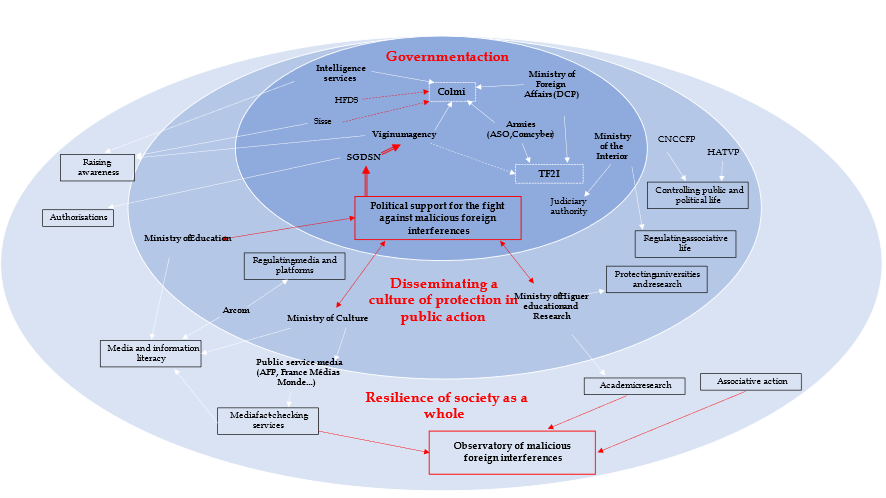C. AN EXTENSIVE BUT VARIABLE-GEOMETRY PROTECTION SYSTEM, WITH NO OVERALL STRATEGY
Awareness of malign foreign influence strategies has led to the development, one piece at a time, of a three-dimensional response plan:
· Detection and characterisation activities, including surveillance and identification of influence operations. The Viginum service, which reports to the French Secretary General for Defence and National Security (SGDSN), is responsible for detecting foreign digital interference.
· Response actions, covering the full range of measures available to the French government, from diplomatic steps to legal action against influence operations. The Foreign Interference Act, finally adopted on 5 June 2024, recently strengthened this arsenal.
· Resilience policies, aimed at protecting civil society against influence operations, before they are detected and responded to.
In theory, this response plan covers all public policies, providing a framework for combating, on the domestic front, influence operations targeting French territory or the French information space and, on the international front, influence operations targeting the deployment and image of the French armed forces and French interests abroad.
Source: Committee of Inquiry
However, despite a largely satisfactory record, policies to combat malign influence operations are strikingly empirical. The construction of bespoke systems for detecting and characterising malign influence operations has led to a fragmentation of our capabilities. The result is a risk of watering down our response capabilities, coupled with a lack of clear operational approach in responding to hostile manoeuvres. These operational difficulties are compounded by a lack of academic understanding of the problem of foreign influence, which has not been studied to any great extent in our universities.
From a strategic point of view, France has no unified view on the issue of malign foreign influences. Furthermore, the French Prime Minister does not have political responsibility for the issue, despite the fact that it cuts across all government departments. As a result, there is a significant mismatch between the involvement of key ministries, which are actively engaged, and that of other departments, which are not well versed in this policy. Moreover, civil society, the main target of influence operations, is ironically largely on the sidelines in the fight against this threat.








